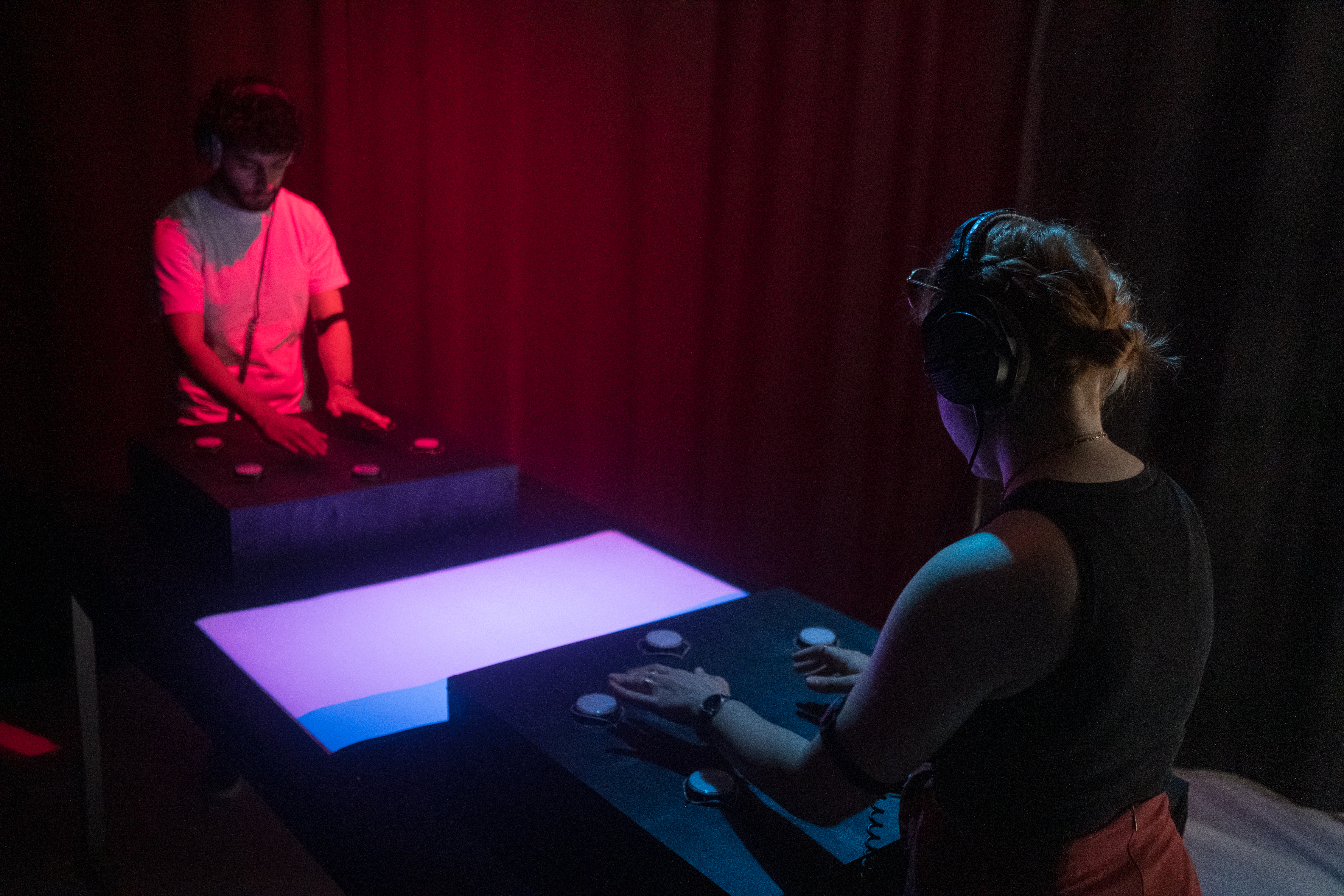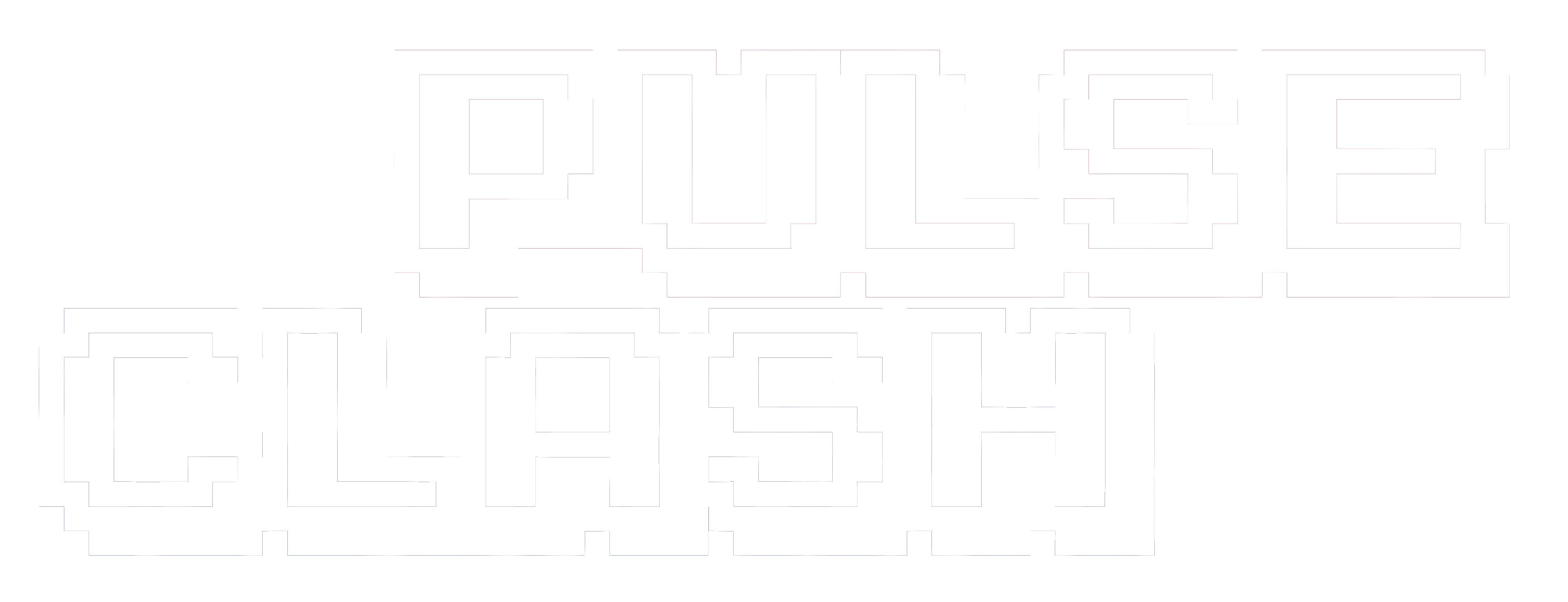COLLABORATION WITH ABDOLRAHIM TOORANIAN
AT THE HEART OF PULSE CLASH LIES A SIMPLE QUESTION: HOW SOON IS NOW? IS THE PRESENT MOMENT DEFINED BY OUR OWN INTERNAL RHYTHMS, LIKE THE HEARTBEAT? OR IS IT CONSTANTLY SHAPED BY THE ENVIRONMENT THAT SURROUNDS US? MAYBE BOTH? OR MAYBE NEITHER?
IN THIS TWO-PLAYER GAME, EACH PLAYER’S EXPERIENCE IS CONTROLLED BY THE OTHER’S HEARTBEAT. AS YOU TRY TO ACT OR REACT, YOUR RHYTHMN — THE “NOW” — IS DICTATED BY SOMEONE ELSE’S BODY. THROUGH THIS, WE EXPLORE WHETHER PRESENCE IS SOMETHING WE OWN OR SOMETHING THAT HAPPENS TO US.
PULSE CLASH DOESN’T RESOLVE THE QUESTION. INSTEAD, IT CREATES AN ENVIRONMENT WHERE THE AMBIGUITY IS FELT DIRECTLY. “NOW” BECOMES A SHARED, SHIFTING NEGOTIATION — SOMETHING UNCERTAIN, YET UNDENIABLY REAL.

THE ARCADE GAME:
At first glance, it’s a fast-paced-button-smashing challenge. But the twist lies in the control mechanism: your own performance is influenced not by your own body, but by your opponent’s heartbeat. The faster your heartbeat becomes, the slower your opponent’s lights will appear — altering their pace and potentially giving them an advantage. This creates a strange inversion: players must not only respond to visual cues but also manage their physiological state. The game rewards awareness of one’s own “clock”, encouraging players to calm down, breathe, and even strategize their heartbeat.
Our sense of ‘now’ is fragile and negotiable — Pulse Clash turns this into a game where winning means syncing with your own internal clock faster and better than your opponent.”
Our sense of ‘now’ is fragile and negotiable — Pulse Clash turns this into a game where winning means syncing with your own internal clock faster and better than your opponent.”












THE STRATEGY
Players enter Pulse Clash expecting a standard reflex-based game-press buttons, respond quickly,
win. But soon, through the sound and interaction,they realise that the speed of their opponent’s lights is not only based on light perception, but also their auditive sense and the feeling of their own heart beating.
This leads to a layered realisation. If you want
to win, you must pace yourself. Some players try
to slow their breathing, regulate their emotions,
even step back mentally from the action. Others
become hyper-aware of how they might be influencing the opponent through stress or calm.It becomes a quiet battle of restraint — a test not only of reaction time, but of physiological awareness.
What begins as instinctive action transforms into a negotiation of control, presence, and bodily rhythm. Pulse Clash doesn’t just ask you to play — it asks you to reflect on how your body affects someone else’s “now.”



